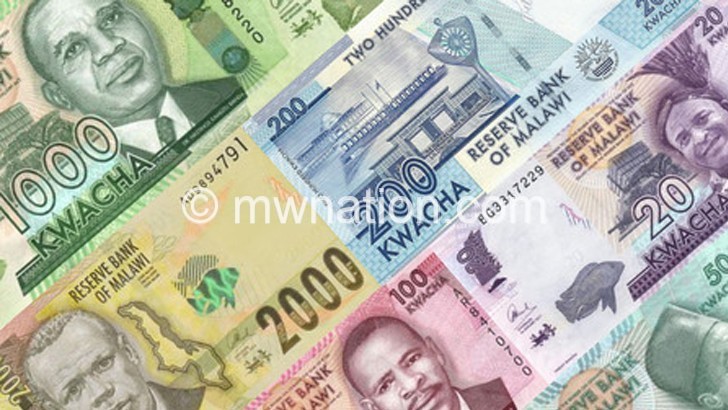Kwacha volatility Hit traders hard
For cross border businesses operating in Malawi, the tumbling kwacha has been a burden as they are grappling with higher costs and weaker consumer demand.
The currency volatility has left the traders— including motor car dealers, household items traders and general items traders—struggling to remain afloat.
According to Cross Border Traders Association of Malawi, the negative effects of the depreciation of the Kwacha are that they have not made any notable profits in recent months when compared to late last year and earlier this year.
The association’s president Esther Tchukambiri said in an interview on Sunday the market is now distorted and planning is proving to be difficult for cross border traders

She said: “The depreciation and the non-availability of foreign exchange on the market from time to time is making our business difficult because we are failing to make losses if not breaking even in rare circumstances.
“We cannot even plan for our business because the next day we find out that things have changed which is bad for any business.”
The kwacha has relatively remained stable for the past three years trading at K740 to a dollar though it experienced some volatility in mid 2019.
In the second half of 2019 the kwacha went back stability until July this year when it depreciated by 0.2 percent since the beginning of the Covid-19 pandemic.
Since July, the kwacha has been swimming in turbulent times and it the peak of the crisis in August it traded at K860 to a dollar.
The local unit as remained volatile till now with latest figures from the central bank showing it is trading at around K778 to a dollar.
In a separate interview, Blantyre based motor car dealer Brian Kayuni indicated sales of vehicles and spare parts have significantly declined in recent times because of the depreciation of the kwacha.
“Comparing vehicle sales at the same time last year I lost a lot of money in millions because I have opted to stop bringing cars in to the country now.
“What is happening is that if we tell a customer price of car say K7 million at the time of order by the time they are coming they find the price has gone up to K9 million. They feel ripped off and the end result is we have to bear that cost,” he said.
Similarly, a trader in household items, men’s clothing and fashion accessories Brenda Nampeya said she is registering a lot of losses in her business in view of the kwacha instability.
“We are only hoping for a stable kwacha because what is currently happening now will definitely push us out of business. We are selling goods at a loss just to maintain our customers but the reality is we can go on this way,” she explained.
Meanwhile the RBM has indicated that it will not maintain a fixed exchange rate regime but will allow flexibility in the movement of the local currency going forward saying will not allow the local until to be fixed against other international convertibles.
RBM governor Wilson Banda told Business News last month that the central bank is mindful of the fact that a runaway exchange rate is not ideal for the economy as it brings harmful effects and is monitoring what is happening with the exchange rate in the region.





